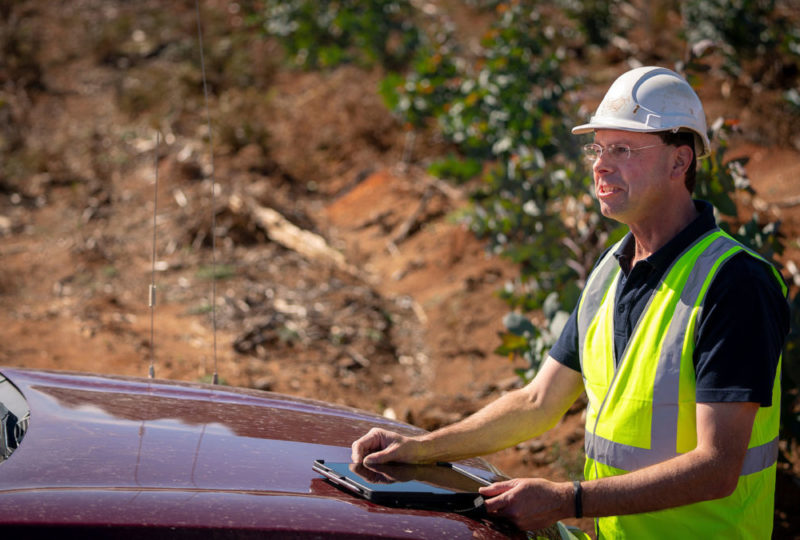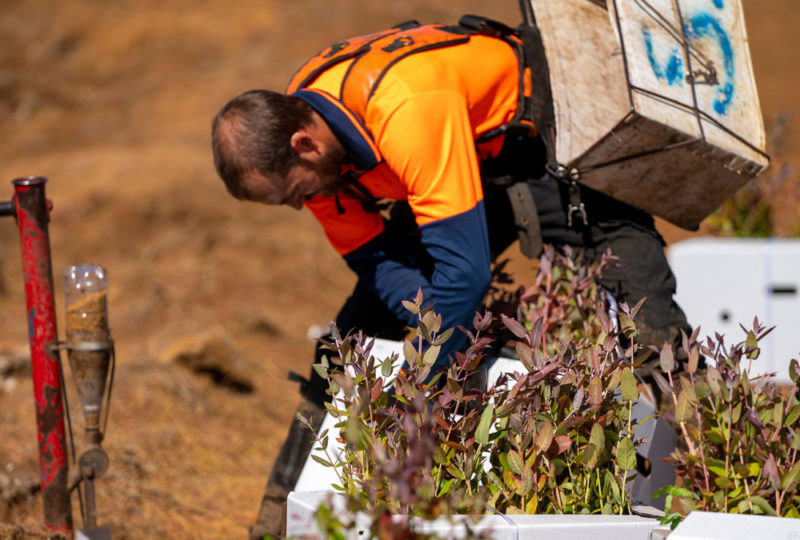Topic: Sustainable & Renewable
The science of growing better trees
Tasmania has more than 300,000 hectares of private plantations providing a range of resources from construction and framing timbers to hardwoods specifically grown for fibre.
Tasmania’s biggest private plantation forest manager, Forico, is undertaking ground-breaking scientific research to enable it to grow trees that are more productive in terms of volume, yield and density. The trees will grow faster, providing both commercial and environmental benefits, including carbon storage.
While the research program does not involve genetically modified organisms (GMOs), it does mean tapping into the molecular structure and genomics of trees and using that data to breed eucalypts that grow faster and deliver the best possible economic return.
The research is focused on Eucalyptus nitens (Shining Gum) which is the company’s major production species across its 90,000 plus hectares of plantation estate. The other major production species are Pinus radiata (Radiata Pine) and Eucalyptus globulus (Tasmanian Blue Gum).
The purpose of this science-based selective breeding program is to ensure the genetics of seedlings are best positioned to deliver trees which:
- Enable an increase in the volume of trees grown on the estate;
- Provide greater density in the timber by lowering water content; and
- Deliver a higher yield of cellulose fibre for kraft wood pulp production.
In other words, Forico are endeavouring to increase the commercial value of each tree by utilising seedlings which have the best, scientifically-proven genetics to deliver that objective.
This is a significant advancement on historic selective tree breeding programs which, at their most fundamental, involved gathering seeds from trees which demonstrated superior qualities. This involved growing and measuring thousands of trees in trials to identify elite tree families.
One of the science-based methods now is to gather data for the breeding program is through genetic marker assisted selection (MAS).
This is a collaborative industry partnership program with Forest and Wood Products Australia and led by specialist research firm Gondwana Genomics. The objective is to develop a key test of DNA marker technology to accelerate plantation tree improvement.
Like any other farming industry, Forico aims to improve the quality of its product. However, our research also holds important implications for other tree farmers across the globe at a time when there is an increased understanding of the importance of well-managed, sustainable forestry in protecting the environment.



